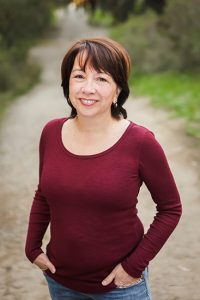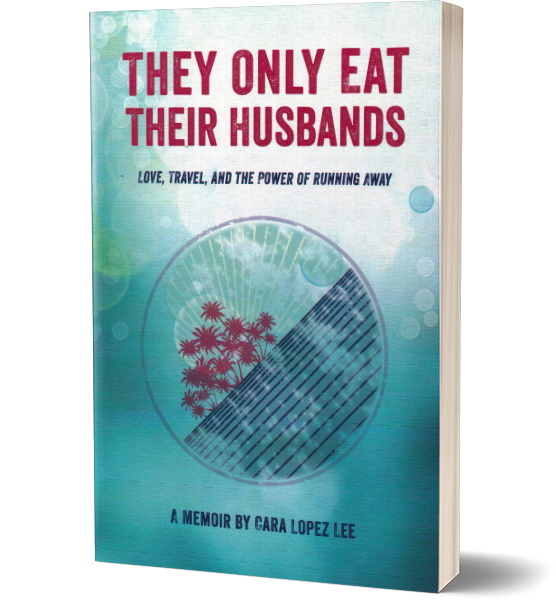I’m excited to introduce you to a writer and adventurer who has witnessed a unique battle for women’s rights in Thailand, specifically, the rights of Buddhist nuns. Cat Kurtz is the author of My Heart the Sun, a non-fiction account of Buddhist Theravada nuns’ fight for the right to become bhikkunis, fully ordained Buddhist monastics.

Bhikkunis are fully ordained Theravada Buddhist monastics. These nuns were ordained in Sri Lanka.
Cat has been a witness to this Southeast Asian women’s movement and spiritual revolution since its beginnings in 2002 and she still communicates regularly with nuns in Thailand. Her hope is to keep her promise to give voice to their untold story. Here is a piece of that promise:
Excerpt from
My Heart the Sun
By Cat Kurtz
©2010
Chapter 2
As soon as I walked through Passport Control, I sensed that something wasn’t right.
Sister Lee had written that our home base would be the Association for the Promotion of the Status of Women – a women’s shelter, orphanage, college for Buddhist nuns, AIDS hospice, jobs skill training center, and international hostel. It was more than I could imagine under one roof. But, according to Lee, two women managed the entire operation. These women, she wrote, were two of the most powerful people in the fledgling women’s movement in Thailand. Dr. Suteera, president of the APSW, and Dr. Corner, the director of UNIFEM, had both been informed of my coming arrival. Lee explained that writing them would “unlock some very large doors,” and assist us in interviewing women throughout Southeast Asia about the spreading AIDS and prostitution epidemic.
In my daydreams, I pictured myself meeting eager women and their families, Lee translating as we wound slowly down the coast of Thailand. I knew this trip was about struggle and the stories would be hard to hear, but in my imagination the pictures were lovely — the journey this happy trail through tall grass and sunshine, far away from break-up fights and crowded bars and anyone I knew. On the plane, I’d gotten increasingly excited about the prospect of recording women’s survival tales under the supportive gaze of the Thai community. I practically ran through Passport Control.

Lee had told me how to spot her in the letters. “Orange robes, bald head, hard to miss,” she’d said.
Lee had told me how to spot her in the letters. “Orange robes, bald head, hard to miss,” she’d said. And there she was – sitting still as stone, all alone, hands folded in her lap. Her solitary figure threw me for a loop. No crowds, no posse of nuns waving and holding up a banner, little orphan children darting from behind their skirts. Lee didn’t even get up. I don’t know how I’d expected her to greet me. Buddhist nuns can’t hug. But I wasn’t used to seeing Lee as a nun. I was used to seeing Lee as a nurse. Now she was bald and dressed all in orange. In the bustling airport, she seemed hyper-serene. I stood there with my baggage and my camera gear unsure whether to bow, or wave, or try for a small embrace.
“Hey Lee,” I said. “Long time no see.”
“They are watching us,” she said, “because they think I’m a man. This is why they let me wait for you outside the rope. Monks are not allowed to sit with women. There is too much risk of stirring up impure thoughts and distracting from meditation.”
I looked around, but every face I searched averted my stare, heads darting down at their shoes. Perhaps, as Lee said, they were looking to see the strange woman with the cross-dressing nun, or they might have thought I was a tourist illegally standing beside a Theravada monk. More likely the folks in the airport were staring at Lee. At the time, I had no idea that she was leading the fight to legalize ordainment for Buddhist nuns. Just associating with her put me under threat of arrest.
“You are probably tired from your long travels,” Lee said. “We can sit here a moment and rest. But we should go back to the Center soon before someone approaches us – an angry man, the police – anyone who has not seen a Buddhist nun.”
Lee’s letters had made Buddhist nuns sound pretty commonplace, but even during those first moments in the country I sensed that airports weren’t the only places they were rare.
“I think you will like the Center.”
I wasn’t so sure. I didn’t like the name of any place called the Center. It sounded like some kind of mental ward.
“There are other nuns there, but not like me. The nuns at the Center all wear white.”
“Why?”
“They are novice nuns. Maechees.”
She spoke in stilted English as if she was struggling to remember the language, and I suddenly realized how long it had been since I last saw Lee and what a stranger she was to me then. In Colorado, where our conversations were confined to the nursing home where she worked, the relationship felt comfortable. Something about this new Lee, this spiritually elevated, culturally unbounded Lee, scared me.
I didn’t understand what these levels of nun meant and what about them might get us arrested in Bangkok International Airport, but I was too tired to ask.
“Do you feel rested and ready to go now?” she asked.
I nodded, then followed her through the sliding airport doors and into Bangkok, where it was night.
(more to come…)
***
 Cat Kurtz teaches writing at the University of Colorado, Boulder. Her work has appeared in literary journals such as Seeds of Peace, Eastern Horizons, terrain.org and Punk Planet. She is an avid adventurer, Write Life Coach and proud new mom. If you’d like to read more of her story, My Heart the Sun, check back here for another excerpt on Thursday, November 11.
Cat Kurtz teaches writing at the University of Colorado, Boulder. Her work has appeared in literary journals such as Seeds of Peace, Eastern Horizons, terrain.org and Punk Planet. She is an avid adventurer, Write Life Coach and proud new mom. If you’d like to read more of her story, My Heart the Sun, check back here for another excerpt on Thursday, November 11.




